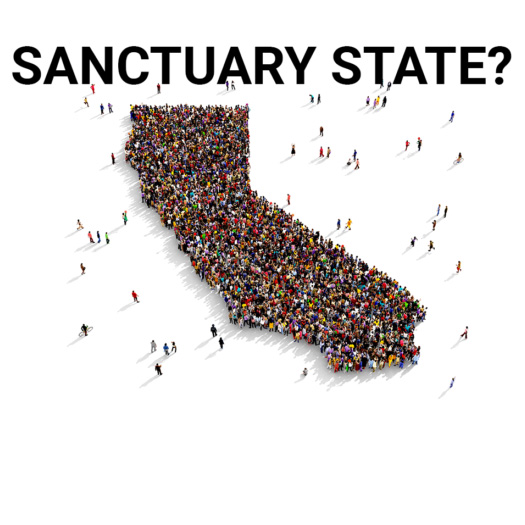Sonoma County is attempting to improve and aggregate its immigration services, but there are significant gaps in resources, particularly in terms of attorney fees, according to Chief Deputy County Counsel Alegria De La Cruz.
De La Cruz addressed a public meeting of the Sonoma Valley Democrats Tuesday night at Sonoma Springs Community Hall.
De La Cruz has worked to implement the Board of Supervisor’s goal of a strategic coordination of immigration services throughout the County. An immigration level-of-service analysis shows there are holes and gaps, she said. The biggest need is for attorneys to argue deportation cases. To serve this need, public, private and non-profit partners will try and raise $2 million over the next three years.
De La Cruz also gave a synopsis of pending state immigration legislation.
SB-54, a bill sponsored by Senate president pro tem Kevin de Leon, would make California a sanctuary state by strongly limiting Sheriff’s cooperation with federal Immigration and Customs Enforcement (ICE).
The bill has created controversy as it removes some discretion from local law enforcement agencies in deciding the extent of their cooperation (ICE. The California State Sheriffs Association opposes the bill, saying that it would allow dangerous criminals to be released back into the community and limit law enforcement’s ability to cooperate at different levels of government.
Currently SB-54 is in deep negotiation. At stake is what threshold of criminal charge, or definition, will be the line above or below which for Sheriff’s to cooperate with ICE.
Specific to Sonoma County, recommendations by the Independent Office of Law Enforcement Review Office, and public pressure, resulted in a change in Sheriff’s Department policy. Before, the Sheriff would notify ICE of all undocumented immigrant releases from jail; starting in July, for undocumented inmate releases, for offenses below a state-mandated threshold, the Sheriff’s Office will not notify ICE of the release date.
Another law under consideration, SB-6, would provide state funds by the millions to non-profits who serve with immigration issues. Sonoma County currently does not have one nonprofit that would qualify for this funding, given current requirements for years in existence, State funding, and BIA accreditation. It may be possible to secure amendments to the bill to ensure that non-profits like La Luz, VIDAS Legal Services, or Catholic Charities to provide pro bono legal services, according to De La Cruz.
AB-3, meanwhile, will provide more public defender funding, and in that regard, the Sonoma County Public Defender, and immigration specialist Bernice Espinoza, have been active on these issues, presenting almost nearly 15 ‘know your rights’ presentations throughout the County since February.
De La Cruz recapped the threats made by the Trump administration to cut funds from sanctuary jurisdictions. Santa Clara, and San Francisco Counties have successfully sued the Administration, arguing that such action is unconstitutional, and have blocked the administration’s attempt to use federal funding to coerce local governments. Sonoma County participated in this lawsuit as a friend of the Court, with 34 other jurisdictions nationwide.
The May 22 meeting at the former Grange Hall was moderated by Mike Smith. Patricia Rendon of the Democrats spoke on what’s happening in the undocumented community. Dave Ransom of the Sonoma Valley Action Coalition Sanctuary Committee addressed the question of “what can we do?”
There are approximately 25,000 undocumented immigrants in the County, and 5,753 in Sonoma Valley. The overall arrest rate nationally has recently gone up by 38%, but has remained static or less in northern California. Fears brought on by the threat of increased deportation have resulted in marked decreases in willingness of the immigrant community to contact law enforcement for any reason. This shows up statistically in decreases in crime reporting.
Immigration fears are also reflected by lowered participation in public benefits programs, with decreases of five percent or more from Cal Fresh, WIC and housing assistance programs.
De La Cruz recounted a story, underlining the absurdity of the Trump era, where the County went to the Mexican Consulate in San Francisco, to ask for funds to protect Mexican citizens from the U.S. federal government, on behalf of the county government.
For more, the County has an immigration resources website.
— Reported by Fred Allebach






Be First to Comment